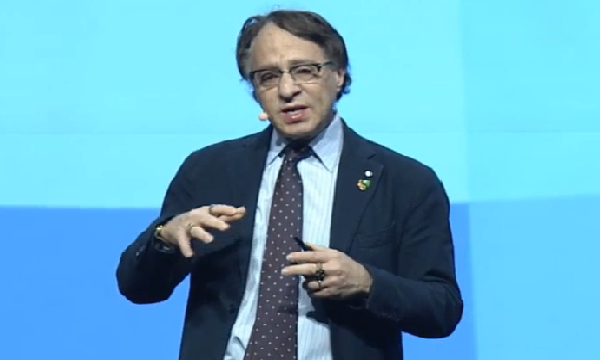
Extending the functions of the brain into the cloud is possible: Ray Kurzweil
Welcome to the artificial intelligence revolution.
Gone are the days when mobile phones are considered a luxury, when only a select few have access to the internet, or when artificial intelligence is an unpopular possibility. We are now in a digital revolution where connectivity is a necessity and people and businesses alike move at the speed of innovation.
And when it comes to technological innovations, one of the greatest think tanks is author, inventor, and futurist Ray Kurzweil, who was one of the keynote speakers at the recently concluded TIBCO NOW conference in Las Vegas. He talked about the revolution in artificial intelligence (AI) that we are witnessing now. “Five or six years ago, AI can’t even tell the difference between a dog and a cat. Now AI can tell the difference between a dog and a cat with a thousand different categories. We’ve gone from ‘AI will never work’ to ‘Oh my God, AI’s gonna work.’”
A couple of years ago, talking to computers or mobile phones was not a widely accepted possibility, but look at how we talk to Siri now. The use of mobile phones has gone beyond just tapping and clicking, now we can talk intelligently to our devices. “Technology sneaks up on us,” said Kurzweil.
But one of the most important things in innovation, according to Kurzweil, is timing: being at the right place with the right idea at the right time. “If you’re too early, you don’t have the enabling factors to succeed. If you’re too late, you miss the window of opportunity,” he noted.
But it seems that many inventors and engineers already mastered the art of timing, and it got to a point where it’s hard to predict anymore what technology we will be presented with in the future. Nevertheless, Kurzweil said there is one thing about the future that is amazingly predictable. “The price performance and capacity of every form of information technology follows a predictable path, and that path is exponential,” he added.
This is The Law of Accelerating Returns - an analysis of the history of technology shows that technological change is exponential, contrary to the common sense intuitive linear view.
Things are now a lot smaller and cheaper but a lot more powerful. And with a 50% deflation rate in all of electronics, we can only expect to have better products at lower costs. Moreover, Kurzweil noted that the co-existence of a free, open-source market and a proprietary market will be a model of the economy going forward.
"The accelerating pace of change and exponential growth in computing power will lead to the Singularity. AI will transform every industry. We will expand the nature of human intelligence and will even extend the functions of the brain into the cloud,” said Kurzweil.
























 Advertise
Advertise






